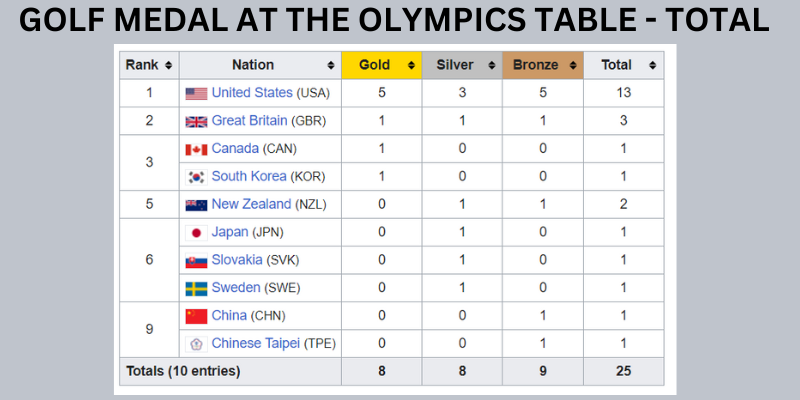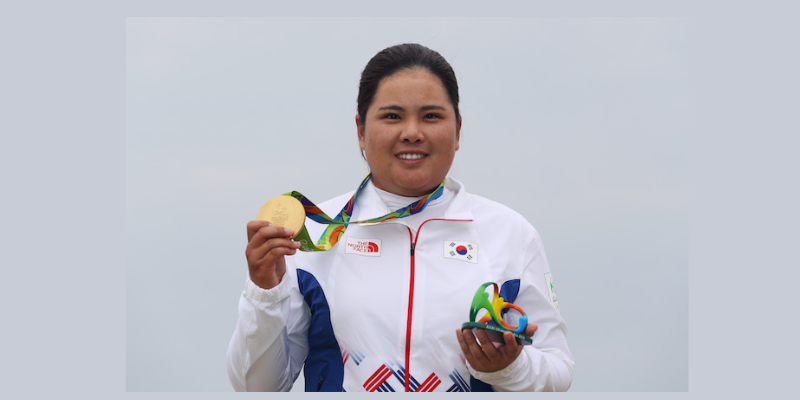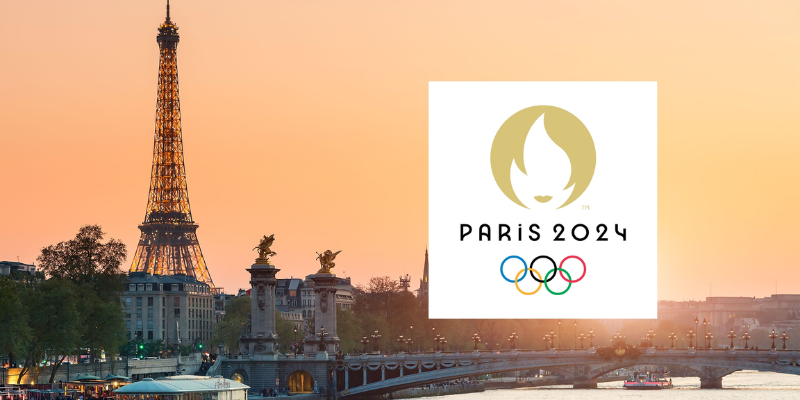Golf in the Olympics, a sport renowned for its precision and tradition, has enjoyed a fascinating and sometimes turbulent relationship with the Olympic Games.
From a century-long absence to a triumphant return, golf has made its mark in the modern Olympics.
In this comprehensive article, we will explore the multifaceted world of golf at the Olympics.
We’ll trace its history, discuss the unique format of the competition, delve into the exceptional players who’ve graced the Olympic course, examine the controversies that have surrounded the event, and analyze the profound impact this inclusion has had on the sport.
History of Golf in the Olympics
Golf’s historical connection with the Olympic Games reveals a fascinating journey that spans over a century.
The sport’s initial foray into the Olympics took place during the early 20th century, where it made its debut in the 1900 Paris Olympics, marking a moment of excitement and exploration.
Despite its early flirtation with the Olympics, golf then experienced an extended hiatus, vanishing from the grand Olympic platform for more than a century.
The reasons for its absence were multifaceted, ranging from concerns about the format to the challenges of scheduling in a crowded sporting calendar.
This initial inclusion was followed by another appearance in the 1904 St. Louis Olympics, cementing golf’s presence on the Olympic stage.
The sport’s absence from the Olympic arena left enthusiasts and athletes yearning for its triumphant return. Golf’s global community recognized that the Olympics, with its unparalleled worldwide reach, offered a unique opportunity to showcase the sport to a diverse and international audience.

The turning point arrived at the Rio de Janeiro Olympics in 2016 when golf was joyously reintroduced to the Summer Games. This marked a momentous occasion that stirred golfers and fans alike.
The significance of this revival cannot be overstated, as it underscores the global appeal and recognition of golf as a mainstream and inclusive sport.
Golf’s return to the Olympics symbolizes a sport that has evolved, adapted, and claimed its well-deserved place on one of the world’s grandest sporting stages.
This resurgence heralded a new era for golf, firmly establishing its presence in the Olympic pantheon, and rekindling the passion of golfers around the world to compete on the hallowed Olympic grounds.
It reflects not only the sport’s rich history but also its enduring capacity to evolve and capture the hearts of sports enthusiasts across the globe.
⛳ Is golf in the Olympics?
Yes ✅
⛳ Has golf ever been an Olympic sport?
At the 121st IOC session in the beautiful Danish city, golf was finally reinstated to the Summer Olympics, initially for Rio de Janeiro in 2016 and Tokyo in 2020. The inaugural golf tournament in 1900 was won by Charles Sands of the USA with scores of 82 and 85.
⛳ Where is 2024 Olympic golf course?
The golf tournaments at the 2024 Summer Olympics in Paris are scheduled to run from 1 to 10 August at Le Golf National in Guyancourt, featuring a total of 120 players (60 per gender) across two medal events.
⛳ How is Olympic golf different from regular golf tournaments?
Olympic golf follows a 72-hole stroke-play format similar to major championships but features a limited field of top players representing their countries, adding a unique element of national pride.
⛳ Are the top professional golfers participating in the Olympics?
While some top professional golfers do participate golf at olympics, not all choose to compete due to scheduling conflicts, health concerns, or other reasons.
The Olympic Golf Format
Olympic golf follows a unique format that distinguishes it from regular Golf Biggest Tournaments. The competition typically employs a 72-hole stroke-play format, mirroring the revered major championships.
However, it adds a distinctive twist by featuring a limited field of top players representing their respective countries.
This injects an extra layer of national pride and competition. Golfers vie for medals not only as individuals but also as representatives of their nations.
Notable Olympic Golfers
The Olympic golf stage has attracted some of the world’s Best Golfers. Justin Rose’s golden performance in Rio de Janeiro has further elevated the sport’s status in the Olympic realm. Nelly Korda’s victory in the women’s competition at the Tokyo Olympics has also contributed to this elevation.
These elite athletes have demonstrated exceptional skill and composure under the heightened pressure of national representation.
Medals and Champions
The Olympic gold medal winners in golf are an intriguing mix of nations, representing the diverse global appeal of the sport.
While traditional golf powerhouses like the United States have claimed medals, the Olympics have also provided opportunities for emerging golfing nations to shine on the global stage.

United States: With its rich golfing tradition, the United States has consistently excelled in Olympic golf, amassing numerous medals that reflect its excellence in the sport. Notable gold medalists include Xander Schauffele in the men’s competition in 2021 and Nelly Korda in the women’s competition in 2021.
Great Britain: Justin Rose’s gold medal victory in Rio de Janeiro in 2016 solidified Great Britain’s status as a champion golfer on the Olympic stage, bringing home Olympic glory.
Sweden: Sweden is another golfing powerhouse that has earned its fair share of Olympic golf medals, contributing to the global diversity of successful nations in the sport. Swedish golfer Henrik Stenson clinched a silver medal in the men’s competition in 2016.
Japan: In recent Olympic tournaments, Japan has made a significant impact in the world of golf, adding to the list of successful nations and demonstrating the sport’s growing international reach.
Japanese golfer Xander Schauffele secured the gold medal in the men’s competition in the 2021 Tokyo Olympics.
South Korea: In the women’s competition, South Korea’s Inbee Park emerged as a gold medalist in Rio de Janeiro in 2016, showcasing exceptional skills and composure on the Olympic stage.

These champions have not only displayed remarkable skill but also a sense of resilience in a unique setting that combines individual excellence with national pride.
Their performances have added new dimensions to the sport and have inspired golfers and fans from around the world.
Controversies and Challenges
Golf’s return to the Olympics has not been without its share of controversies and challenges. Some top players have opted out of the Olympic competition, citing scheduling conflicts, health concerns, or the absence of significant prize money compared to regular professional events.
In addition, the choice of golf courses and concerns about their environmental impact have been raised in various host cities.
Impact
The inclusion of golf in the Olympic program has had a profound impact on the sport. It has brought a heightened global attention to golf, expanding its fan base and inspiring the growth of the game in countries where it was previously less prominent.
Furthermore, it has created opportunities for amateurs and emerging talents to compete on the world stage, fostering the development of golf in regions that were once overlooked.
Future
Certainly, the 2024 Summer Olympics will be held in Paris, and golf is set to be a part of this prestigious sporting event.

As golf’s presence in the Olympics becomes more established, discussions regarding the sport’s future within the Games are ongoing. To enhance the Olympic golf experience and make it more appealing to a broader and diverse audience, several potential changes and developments are being considered:
- Modifications to Format: Olympic golf may undergo changes to maintain its competitiveness and excitement. These changes might include adjustments to the number of rounds, scoring systems, or introducing new challenges.
- Course Selection: Olympic golf courses undergo scrutiny to meet standards and provide a unique experience for athletes and spectators.
- Inclusion of Team Events: Discussions explore the addition of team events in Olympic golf to diversify the competition and engage a broader audience. This introduces collaboration alongside individual competitions.
As golf continues to evolve within the Olympic framework, these discussions and potential changes aim to ensure that it remains an exciting and inclusive part of the Games.
The sport’s governing bodies are committed to making the Olympic golf experience more enriching and accessible to a wider audience.
Conclusion
Golf in the Olympics has added a new chapter to the sport’s history. It combines tradition, national pride, and sporting excellence in the Olympic competition.
As golf in the Olympics moves forward, it’s intriguing to see how it evolves and impacts the global golfing landscape. The sport aims to reach new heights of popularity and inclusivity. This journey continues to shape the world of sports and inspire future athletes.